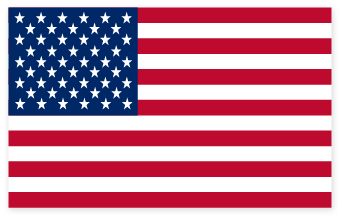You do need to Tovel the Keilim again, your friend’s Tevillah may not have worked. However, it is a good idea to be Tovel them without a bracha.
Explanation:
The Gemara in Avoda Zara 75b writes: Rav Nachman said in the name of Rabah bar Abuha we only say Kli is obligated n Tevillah only if he bought it but no if they are just borrowed.
Tosfot there add, Rabbeinu Shmuel said a Jew who borrows a Kli from his friend who bought it from a Non-Jew needs to Tovel it since the Kli became obligated to be immersed by the first Jew.
Tosfot says that Rav Nachman says a borrowed Kii does not need to be Toveled only if he borrowed directly from a Non-Jew but if Jew bought from a Goy and then another Jew borrows it then it needs Tevillah. That is since the first Jew, the buyer, is obligated to Tovel the Kli so even if the he needs it to his friend the friend cannot use it unless he Tovels it.
The Rosh quotes this as well from the Rashbam and the Hagahot Ashri comments: however, if the first we bought the utensil to cut parchment but not for eating (which doesn’t require Tevillah) then the second Jew does not need to be Tovel it since he is just borrowing it.
We see that the second Jew who borrows the Kli is now obligated if there was an obligation to Tovel it but the first person was not obligated then neither is the second.
The Bet Yosef (Yod 120) understood from the Hagahot Ashri that just as a person who bought it for cutting parchment doesn’t need to be Tovel, so too one who buys Kelim to sell does not need. Therefore, someone who buys from a Jewish store neither of them need to do Tevillah. However, the Bet Yosef chances his mind and says that is it sonly where the second person borrows it from the first he is exempt from Tevillah but if the buy sit forma Jewish store then he must Tovel it. So rules Mahari BeiRav.
(Not everyone agrees with The Hagahot Ashri. The Taz quotes the O”H that fi the ne who bought eh Kli for cutting parchment decided to cut his chicken , even onetime, he must Tovel it, therefore it is considered as if the obligation to Tovel the Kli happened by the owner, therefore even if he lends out the Kli the borrower must Tovel it if he wants to use it to eat. The Taz says therefore one should Tovel the Kli without a bracha.
The Pri Chadash though argues that even I used it once we don’t need to be tovel since we follow what the Kli is used most for. Therefore if he bought the knife to cut parchment and used it to eat, it would not be obligated in Tevillah and therefore the borrower would not need to be Tovel it.)
The Shulchan Aruch rules (120:8) One who borrows or rents a Kli from a Goy it does not need Tevillah, but if a Jew buys from a Goy and does not Tovel it and lends his friend, he must Tovel it before using it since the first person was required to tovel it. However, some say if he did not by I t for eating rather to cut parchment then the borrower does not need to Tovel it. The Rema adds: The first person is forbidden to use it for eating even once without Tevillah, even if he bought for cutting parchment. So too if the second person bought if from the first for meal preparation, he must Tovel it.
Five Halachot come out from the Shulchan Aruch:
A Kli borrowed or rented forma Goy does need Tevillah.
A Jew who buys from a Non-Jew and lends it to another Jew , he must Tovel it.
A Jew who buys a Kli not for food and lends is it to another, the borrower does not need to Tovel.
A Jew who buys from a Goy a utensil not for meal preparation may to use it for eating without Tevillah even once.
A Jew who buys a utensil from a Goy for eating and sells it to another Jew, the second needs to Tovel it.
Our case is not mentioned in the Shulchan Aruch where he bought the Kli to give it to his friend. It seems it would be same a someone who bought a Kli for a store which is exempt from tevillah and therefore the second person has to be tovel it. I the first person was Tovel it before giving it won’t work and Shimon has to Tovel it.
I would even day he needs to Tovel it again with a bracha since the first person is not obligated int Tevillat Keilim at all and the obligation is only on the second then he should say a bracha. However some understand the OH that the store owner does have an obligation to Tovel the Kli even if he has no intention of using it for meals. Therefore the first Tevillah might not be good and the second does need to be Tovel. So, it is better not to say a bracha.



